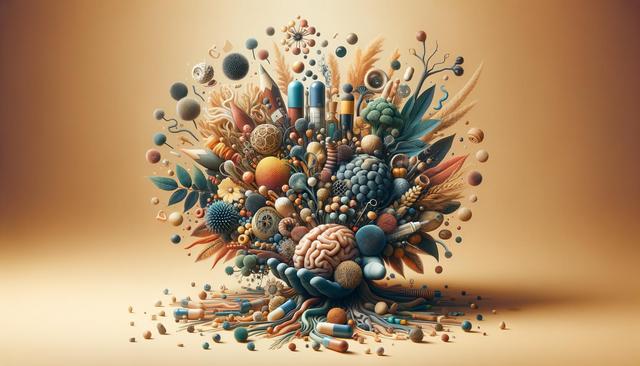What Is a Depression Test and Why Take One?
A depression test is a structured method designed to help individuals evaluate their emotional and mental state in a reliable way. These tests are often used as part of a comprehensive mental health evaluation for depression symptoms. While they are not a substitute for a professional diagnosis, these tools can offer valuable insights that encourage people to seek further help if needed. Depression can affect anyone, regardless of age or background, and early detection plays a vital role in managing the condition effectively.
There are various types of assessments available, from informal self-checks to more detailed depression diagnostic questionnaires for adults. Some of the main reasons people consider taking a depression test include:
- Persistent sadness or low mood
- Loss of interest in activities once enjoyed
- Changes in appetite or sleep patterns
- Feelings of worthlessness or hopelessness
- Difficulty concentrating or making decisions
Taking a depression test can offer clarity and direction, especially for individuals unsure about the nature of their emotional struggles. It can also provide a sense of validation and an important first step toward recovery.
Exploring the Clinical Depression Self-Assessment Tool
One widely used method for identifying depressive symptoms is the clinical depression self-assessment tool. These tools are often standardized and based on psychological research, making them useful for both individuals and healthcare providers. They typically ask a series of questions related to mood, energy levels, sleep, and daily functioning.
While the results of such tools are not intended to serve as a definitive diagnosis, they can be a helpful indicator that professional guidance may be beneficial. These assessments are especially useful for:
- Monitoring changes in mood over time
- Recognizing patterns in emotional well-being
- Providing a structured format to articulate feelings
Using a clinical depression self-assessment tool can empower individuals to take their mental health seriously. It bridges the gap between recognizing internal struggles and taking action toward improvement. Most of these tools are free, easy to use, and available through reputable mental health organizations.
The Value of Private Depression Screening Online
For many people, privacy is a key concern when addressing mental health. A private depression screening online offers a discreet way to assess emotional well-being without the pressure of in-person interaction. These online tools are designed to be user-friendly and accessible from anywhere, making them a convenient option for those who might hesitate to seek traditional help.
Benefits of using online screening tools include:
- Immediate access and results
- No need for appointments or travel
- A non-judgmental environment
- Availability 24/7
While online screenings should not replace professional evaluation, they can play a valuable role in raising awareness and guiding users toward appropriate resources. Many platforms also provide follow-up recommendations, such as contacting a mental health professional or exploring therapy options. For those who feel isolated or unsure about their symptoms, private depression screening online can be an important first step.
Understanding the Depression Diagnostic Questionnaire for Adults
The depression diagnostic questionnaire for adults is typically more comprehensive than basic screening tools. It often forms part of a clinical evaluation carried out by psychologists or other mental health professionals. These questionnaires cover a broader range of symptoms and may delve into personal history, lifestyle factors, and co-occurring conditions like anxiety or substance use.
Some common characteristics of these diagnostic tools include:
- Standardized scoring systems
- Questions based on DSM-5 criteria
- Evaluation of symptom duration and intensity
- Consideration of functional impact on daily life
By using these detailed questionnaires, professionals can better determine the presence and severity of depression. This process supports the development of personalized treatment plans that may include therapy, medication, lifestyle changes, or a combination of approaches. For adults navigating complex emotional challenges, these assessments provide a structured and validated path toward understanding their mental health.
Taking the Next Steps After a Depression Test
Once you’ve taken a depression test—whether a clinical depression self-assessment tool, a private depression screening online, or a more in-depth depression diagnostic questionnaire for adults—it’s important to consider the next steps. The results can guide you toward appropriate resources and help you decide whether to seek further evaluation from a healthcare provider.
If the screening indicates potential signs of depression, consider:
- Talking to a licensed mental health professional
- Exploring therapy or counseling options
- Joining support groups or online forums
- Making lifestyle changes to improve well-being
Even if the results don’t suggest clinical depression, the process can still be enlightening. It may highlight stressors or emotional issues worth addressing through self-care or informal support. Remember, taking a depression test is not just about identifying a condition—it’s about taking control of your mental health and creating space for reflection and growth.
Conclusion: Empowering Yourself Through Awareness
Depression testing, whether through a clinical depression self-assessment tool or a private depression screening online, offers a valuable way to begin understanding your emotional health. These tools are not definitive diagnoses, but they serve as practical and accessible resources for those seeking clarity. By exploring a mental health evaluation for depression symptoms or engaging with a depression diagnostic questionnaire for adults, individuals can take meaningful steps toward well-being. If you’re feeling uncertain about your mental state, consider using these tools as a gateway to further support and self-awareness. Taking that first step could make a significant difference in your journey toward emotional balance and resilience.







